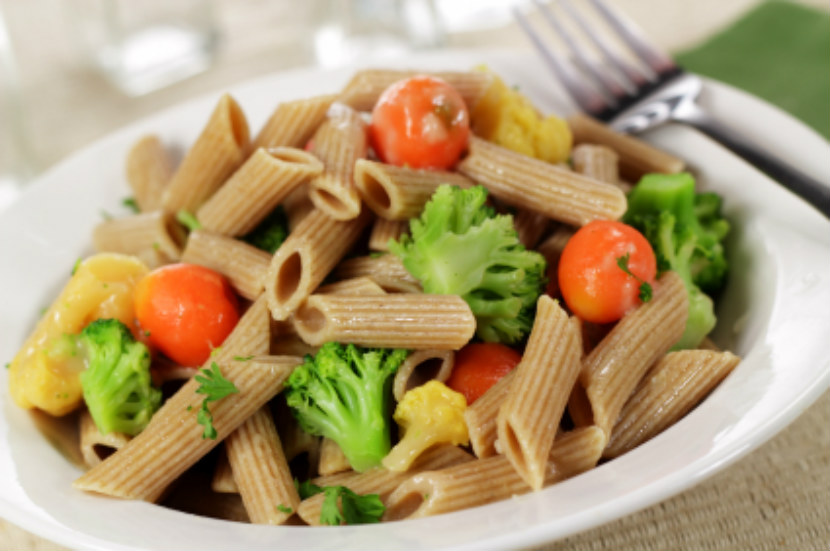
Being constipated can be stressful. It is often hard to know what to do. Constipation can cause you to have stomach pain, bloating, gas and poor appetite. For many people, constipation problems happen from time to time and then go away. By following a few tips, you can help prevent constipation and promote regular bowel movements.
What is constipation?
Constipation is when you do not have bowel movements regularly. When you do have a bowel movement, it is often dry, hard, difficult to pass and may be painful.
What causes constipation?
There are many different reasons for constipation. Some reasons may include:
- Not enough fibre or fluids
- Not enough physical activity
- Changes in toilet routines (for example, when going on vacation)
- Not going to the washroom when you have the urge
- Not using laxatives properly
- Some medications or supplements
- Irritable bowel syndrome (IBS) - note: for tips on managing constipation related to IBS, see our article on IBS or connect with a dietitian for specific advice.
How is constipation treated?
The tips below may help ease the symptoms of constipation.
Follow a high fibre diet. High fibre foods help your stools stay soft by holding on to liquid. When increasing fibre in your diet, increase the amount of fibre you eat slowly over a few days so that your digestive system can get used to it. Try the tips below:
- Eat a balanced diet, as recommended in Canada’s Food Guide. At each meal, make sure to fill at least half your plate with vegetables and fruits.
- Choose whole vegetables and fruits instead of juice
- Add fresh or frozen berries to cereal and yogurt like in this yogurt banana split
- Choose whole grain breads that have at least 2 grams of fibre per slice
- Use high fibre cereal like bran with at least 4 grams of fibre per serving
- Add dried fruits to yogurt, salads and homemade muffins
- Add lentils or beans to soups, casseroles and salads like in this chickpea vegetable salad
Drink enough fluids as you increase the amount of fibre you eat. Fluids help you to digest foods and help to keep your bowels regular. Fluids can include water, milk, tea, coffee and soup. Read Facts on Fluids - How to stay hydrated to learn how much fluid you need.
Be physically active. Adults aged 18 to 64 should aim for 2 ½ hours of moderate to vigorous physical activity per week. You can be active for as little as 10 minutes at a time. Some examples of ways to get active include:
- Brisk walking
- Bike riding
- Dancing
- Swimming
- Raking leaves and
- Skating
Schedule a regular time to go to the bathroom. Make sure you don’t have to rush so that you can have a bowel movement without stress. This will help your body get into a routine.
Should I take dairy out of my diet to improve constipation?
No. In general, no one food causes constipation. Taking dairy out of your diet is not necessary. If you would like to try eliminating foods from your diet, it is best to consult a dietitian so that you don’t miss out on important nutrients.
Should I take probiotics to improve constipation?
Probiotics may help reduce some symptoms of constipation like bloating and gas. More research is needed however to make specific recommendations on which strains of probiotics to take and how much. Overall, foods with probiotics like yogurt are safe for most people, and fit into a healthy diet if you’d like to give them a try.
Should I take laxatives to improve constipation?
It is important to speak to your health care provider before taking laxatives. If you take laxatives, always follow the instructions for the dose and the amount of time you should be taking them. Make sure you drink enough fluids as well.
Should I eat prunes or drink prune juice to improve constipation?
Prunes, pears and apples have a natural ingredient in them that can help you with constipation. You can try adding these foods to your diet to see if they help with your constipation. Try to eat the fruit instead of drinking the juice as the fruit contains more fibre and less sugar. For specific guidance on the type and amount to include, connect with a dietitian.
When should I go to the doctor for my constipation?
See your doctor if you:
- Are concerned about your constipation
- Have a sudden change in bowel movements
- Plan on taking laxatives or
- Take medications that can cause constipation and dietary changes do not help
How can a dietitian help?
A dietitian can work with you to suggest ways to increase the amount of fibre and fluids in your diet. They can also answer any questions you have about probiotics and other fibre supplements. Most dietitian services are covered by employee health benefits. Connect with a dietitian today!
Bottom line
Constipation can happen for many reasons. Constipation can often be eased by adding more fibre and fluids to your diet and being physically active. See your health care provider if you are concerned about your constipation or have a sudden change in bowel movements.
For more tips on how to promote healthy digestion, read Tips for Healthy Digestion.
You may also be interested in:
Focus on Fibre
Facts on Fluids – How to Stay Hydrated
Label Reading
What is a Dietitian?
This article was written and reviewed by dietitians from Dietitians of Canada.
Last Update – May 6, 2022